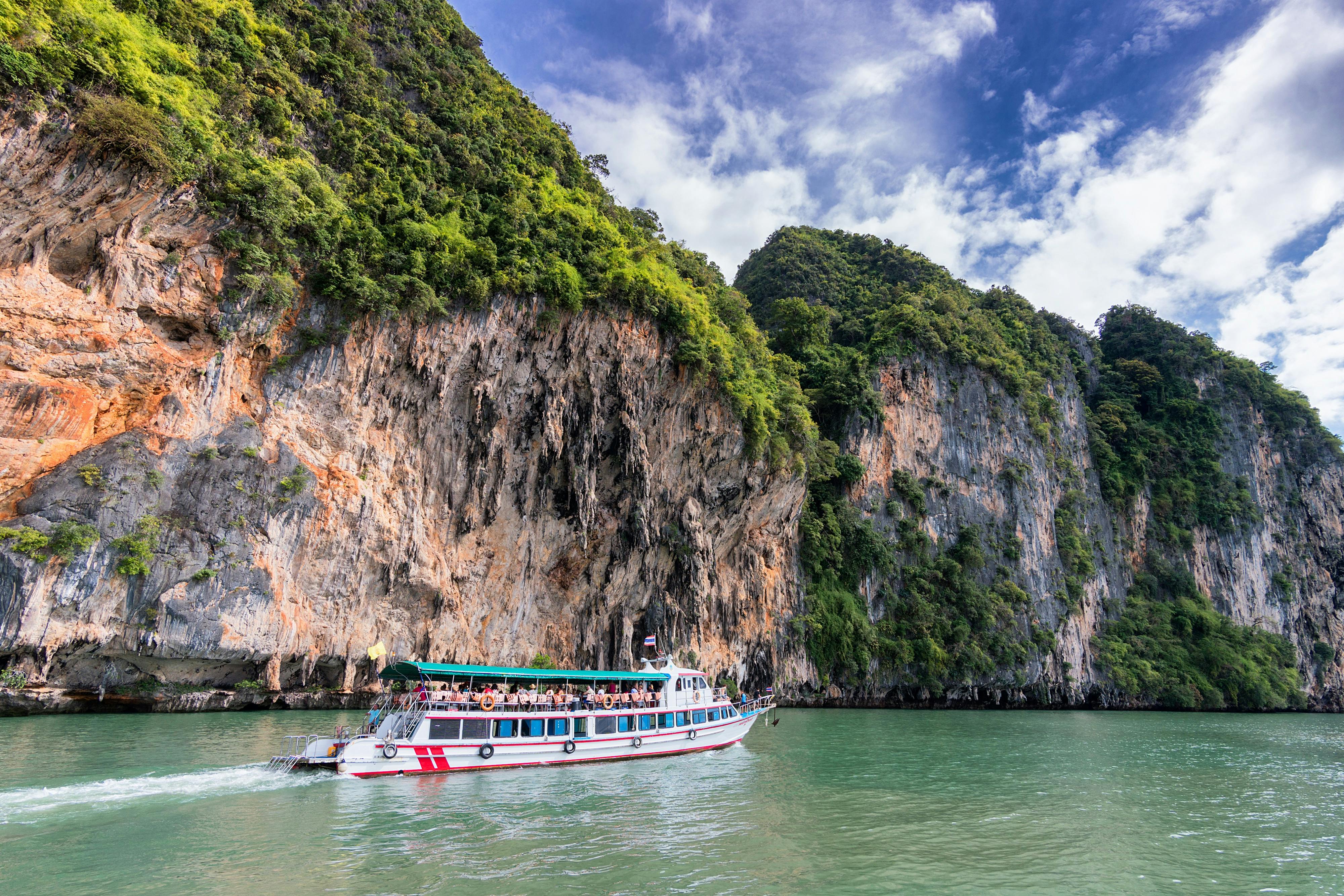11 Ways to Travel Sustainably Without Sacrificing Comfort or Connection
In recent years, the travel industry has witnessed a significant shift towards sustainability. As global awareness of environmental issues grows, travelers are increasingly seeking ways to minimize their ecological footprint without compromising on comfort or the richness of their experiences. This guide delves into the art of sustainable travel, offering insights and practical tips for those who wish to explore the world responsibly. Sustainable travel is not just a trend; it is an essential aspect of modern tourism that balances the needs of the planet, local communities, and travelers themselves. By adopting sustainable practices, travelers can enjoy the same level of comfort and connection while contributing positively to the destinations they visit.
1. Understanding the Impact of Travel

Travel has the power to transform lives and connect people across cultures, but it also has a significant impact on the environment and local communities. Understanding these impacts is the first step towards sustainable travel. The carbon emissions from flights, the waste generated by tourists, and the strain on local resources are just a few of the challenges associated with travel. By recognizing these issues, travelers can make more conscious choices that reduce their environmental footprint and support the well-being of the destinations they visit. One of the most significant impacts of travel is the carbon footprint associated with transportation, particularly air travel. Flights contribute to a substantial portion of global carbon emissions, which exacerbate climate change. However, by choosing alternative modes of transportation, such as trains or buses, or opting for direct flights, travelers can significantly reduce their carbon emissions. Additionally, participating in carbon offset programs can help mitigate the environmental impact of air travel.
2. Choosing Eco-Friendly Accommodations

Selecting eco-friendly accommodations is a fundamental aspect of sustainable travel. With the rise of eco-tourism, many hotels and lodgings are adopting sustainable practices to minimize their environmental impact. When choosing accommodations, travelers should look for certifications such as LEED or Green Key, which indicate a commitment to sustainability. These certifications ensure that the property adheres to environmentally friendly practices, such as energy efficiency, waste reduction, and water conservation. Eco-friendly accommodations often go beyond environmental considerations, incorporating social and cultural sustainability into their operations. Many eco-lodges and sustainable hotels prioritize the use of locally sourced materials and employ local staff, contributing to the local economy and preserving cultural heritage. By choosing accommodations that support local communities, travelers can enhance their connection to the destination and gain a deeper understanding of its culture and traditions.
3. Reducing Waste While Traveling

Waste reduction is a critical component of sustainable travel. Tourists often generate a significant amount of waste, from single-use plastics to food waste, which can strain local waste management systems. By adopting mindful practices, travelers can significantly reduce their waste footprint and contribute to a cleaner environment. One of the simplest ways to reduce waste is to pack reusable items, such as water bottles, shopping bags, and utensils, which can replace single-use plastics. In addition to using reusable items, travelers can make conscious choices about the products they consume. Opting for products with minimal packaging or choosing locally made goods can help reduce waste and support local businesses. Travelers should also be mindful of their food choices, as food waste is a significant issue in the tourism industry. By dining at restaurants that prioritize sustainable practices and offering to-go containers for leftovers, travelers can minimize food waste and enjoy delicious, locally sourced meals.
3. Supporting Local Economies

Supporting local economies is a vital aspect of sustainable travel that benefits both travelers and host communities. By choosing to spend money on local businesses, travelers can contribute to the economic sustainability of the destinations they visit. This includes dining at locally owned restaurants, purchasing handmade crafts from local artisans, and staying at family-run accommodations. Supporting local businesses not only helps preserve cultural heritage but also ensures that the economic benefits of tourism are distributed more equitably. Engaging with local communities in meaningful ways can also enhance the travel experience. Participating in community-led tours or workshops offers travelers a unique opportunity to learn about local customs and traditions from those who live them every day. These experiences often provide a more authentic perspective on the destination and foster a deeper connection between travelers and local residents. By showing respect and appreciation for local cultures, travelers can build positive relationships and contribute to the social sustainability of the places they visit.
4. Opting for Sustainable Transportation

Transportation is a significant factor in the environmental impact of travel, and choosing sustainable options can greatly reduce a traveler's carbon footprint. While air travel is often necessary for long-distance journeys, travelers can opt for more sustainable alternatives whenever possible. Trains and buses are generally more environmentally friendly than flights, and they offer the added benefit of scenic routes that allow travelers to experience the beauty of the landscape. For shorter distances, travelers can consider biking or walking, which are not only sustainable but also offer a more intimate way to explore a destination. Many cities around the world have implemented bike-sharing programs and pedestrian-friendly infrastructure to encourage sustainable transportation. By choosing these options, travelers can reduce their environmental impact while enjoying a healthier and more immersive travel experience.
5. Engaging in Responsible Wildlife Tourism

Wildlife tourism offers travelers the opportunity to connect with nature and observe animals in their natural habitats. However, it is essential to engage in wildlife tourism responsibly to ensure the well-being of the animals and the preservation of their habitats. Travelers should choose reputable tour operators that prioritize animal welfare and adhere to ethical guidelines. This includes maintaining a safe distance from wildlife, avoiding activities that involve direct contact with animals, and supporting conservation efforts. Responsible wildlife tourism also involves being mindful of the impact of tourism on natural habitats. Overcrowding and habitat destruction can have detrimental effects on wildlife populations. By visiting protected areas and national parks that implement sustainable tourism practices, travelers can contribute to conservation efforts while enjoying the beauty of nature. Many parks offer guided tours led by knowledgeable naturalists who provide valuable insights into the local ecosystem and the importance of conservation.
6. Minimizing Energy Consumption

Minimizing energy consumption is an important aspect of sustainable travel that can significantly reduce a traveler's environmental impact. Travelers can take simple steps to conserve energy while staying at accommodations, such as turning off lights and electronics when not in use, using energy-efficient appliances, and adjusting the thermostat to conserve heating and cooling. Many eco-friendly accommodations implement energy-saving measures, such as solar panels and energy-efficient lighting, which travelers can support by choosing to stay at these properties. In addition to conserving energy at accommodations, travelers can reduce their energy consumption while exploring their destinations. Opting for public transportation, biking, or walking instead of driving can significantly reduce energy use and emissions. Travelers can also support local businesses that prioritize energy efficiency, such as restaurants that use energy-efficient cooking methods or shops that utilize renewable energy sources.
7. Embracing Slow Travel

Slow travel is a concept that encourages travelers to take their time and immerse themselves in the destinations they visit. It is a sustainable approach to travel that prioritizes quality over quantity, allowing travelers to form deeper connections with the places and people they encounter. By spending more time in one location, travelers can reduce the environmental impact associated with frequent transportation and gain a more authentic understanding of the local culture and way of life. Embracing slow travel involves being present and mindful of one's surroundings. It encourages travelers to engage with local communities, participate in cultural activities, and explore off-the-beaten-path destinations. By taking the time to learn about the history, traditions, and customs of a place, travelers can gain a richer and more meaningful travel experience. Slow travel also allows for spontaneous discoveries and serendipitous encounters that can enhance the journey.
8. Practicing Mindful Consumption

Mindful consumption is an essential aspect of sustainable travel that involves making conscious choices about the products and services one uses while traveling. By being mindful of their consumption habits, travelers can reduce their environmental impact and support ethical and sustainable practices. This includes choosing products that are environmentally friendly, ethically sourced, and locally made. When dining out, travelers can opt for restaurants that prioritize sustainable practices, such as using locally sourced ingredients and minimizing food waste. Many destinations offer farm-to-table dining experiences that allow travelers to enjoy fresh, seasonal produce while supporting local farmers. By choosing to dine at these establishments, travelers can enjoy delicious meals while contributing to the sustainability of the local food system.
9. Fostering Cultural Respect and Understanding

Cultural respect and understanding are fundamental to sustainable travel. By approaching travel with an open mind and a willingness to learn, travelers can foster meaningful connections with the people and cultures they encounter. This involves being respectful of local customs, traditions, and social norms, as well as being mindful of one's behavior and language. Travelers can enhance their cultural understanding by participating in cultural activities and engaging with local communities. This includes attending cultural events, visiting museums and historical sites, and participating in workshops or tours led by local guides. By taking the time to learn about the history and traditions of a place, travelers can gain a deeper appreciation for its culture and way of life.
10. Participating in Community-Based Tourism

Community-based tourism is a sustainable approach to travel that involves local communities in the development and management of tourism activities. By participating in community-based tourism, travelers can support local economies and contribute to the social and cultural sustainability of the destinations they visit. This type of tourism often involves staying in community-run accommodations, participating in cultural activities, and supporting local businesses. Community-based tourism offers travelers a unique opportunity to experience a destination from the perspective of its residents. This often includes participating in traditional crafts, cooking classes, and cultural performances that provide insight into the local way of life. By engaging with local communities, travelers can gain a deeper understanding of the culture and traditions of a place while contributing to its economic sustainability.
11. Advocating for Sustainable Tourism Practices

Advocating for sustainable tourism practices is an important aspect of responsible travel that involves raising awareness and promoting positive change within the tourism industry. Travelers can play a crucial role in advocating for sustainability by making informed choices, supporting ethical and sustainable businesses, and encouraging others to do the same. This includes sharing knowledge and experiences with fellow travelers, as well as engaging with tourism operators and policymakers to promote sustainable practices. One way travelers can advocate for sustainable tourism is by supporting businesses and organizations that prioritize environmental and social responsibility. This includes choosing accommodations, tour operators, and restaurants that implement sustainable practices and contribute positively to the local community. By supporting these businesses, travelers can help create a demand for sustainable tourism options and encourage others to follow suit.
As we conclude this comprehensive guide to sustainable travel, it is essential to reflect on the impact of our choices and the role we play in shaping the future of tourism. Sustainable travel is not just about reducing our environmental footprint; it is about fostering meaningful connections, supporting local communities, and preserving the beauty and diversity of our planet. By embracing sustainable practices, travelers can enjoy enriching and comfortable experiences while contributing positively to the destinations they visit.








